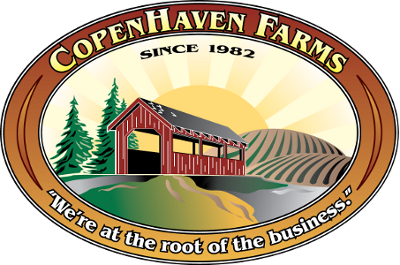BUD 9 (Budagovsky 9)
[30-35% size of standard tree] Precocious. May be more tolerant to fire blight than M-9. Resistant to crown and root rots. Extremely winter hardy. Requires support. Moderate suckering.
NAKB 9 (M9-337)
[30-35% size of standard tree] The standard to which most Malling 9 type rootstocks are compared. Requires support. Very precocious and produces large fruit. Resistant to collar rot. Susceptible to fire blight.
BUD® 10 (Budagovsky 10)
[35-40% size of standard tree] Very cold hardy. Has some fire blight resistance, is replant tolerant and has a large dense root mass. High yield efficiency. Nursery and grower friendly.
M-9 Pajam® #2
[35-40% size of standard tree] Slightly more vigorous than NAKB 9 337 dwarf rootstock. Requires support. Sensitive to fire blight. Superior rooting compared to other 9 clones.
Geneva® 11
[40-45% size of standard tree] Good precocity. Resistant to collar rot and fire blight.
Geneva® rootstock descriptions are based on New York growing conditions. Mature tree size may differ in other climates and growing conditions. Click here for additional information on the Geneva® series.
Geneva® 41
[35-40% size of standard tree] Fully-dwarfing rootstock similar in size to M.9 with precocity and productivity surpassing M.9 in trials. Cold hardy and highly resistant to fire blight and crown rot.
Geneva® rootstock descriptions are based on New York growing conditions. Mature tree size may differ in other climates and growing conditions. Click here for additional information on the Geneva® series.
Geneva® 214
[35-40% size of standard tree] Has good precocity and yield efficiency. Resistant to fire blight, crown rot and woolly apple aphid. Has a strong graft union and is replant tolerant.
Geneva® rootstock descriptions are based on New York growing conditions. Mature tree size may differ in other climates and growing conditions. Click here for additional information on the Geneva® series.
Geneva® 935
[40-50% size of standard tree] Semi-dwarfing stock similar in size to M.26. Most precocious and productive of the semi-dwarfing rootstock. Cold hardy and highly resistant to fire blight and crown rot.
Geneva® rootstock descriptions are based on New York growing conditions. Mature tree size may differ in other climates and growing conditions. Click here for additional information on the Geneva® series.
Geneva® 969
[45-50% size of standard tree] Vigor between EMLA 26 and EMLA 7. Resistant to fire blight, phytopthora and woolly apple aphid. Good anchorage and a productive and efficient rootstock.
Geneva® rootstock descriptions are based on New York growing conditions. Mature tree size may differ in other climates and growing conditions. Click here for additional information on the Geneva® series.
Geneva® 210
[60% size of standard tree] This rootstock is precocious, fire blight and woolly apple aphid resistant and cold hardy.
Geneva® rootstock descriptions are based on New York growing conditions. Mature tree size may differ in other climates and growing conditions. Click here for additional information on the Geneva® series.
Geneva® 890
[60-65% size of standard tree] This rootstock is highly resistant to woolly apple aphid and fire blight. It is also cold hardy and self-supporting.
Geneva® rootstock descriptions are based on New York growing conditions. Mature tree size may differ in other climates and growing conditions. Click here for additional information on the Geneva® series.
EMLA 26
[40-50% size of standard tree] Precocious. Requires support. Moderately resistant to powdery mildew. Most hard of Malling series rootstocks. Light suckering. One of the most widely planted rootstocks in the USA.
EMLA 7
[50-60% size of standard tree] One of the most popular rootstocks in the commercial industry. Somewhat precocious. Fruit size often small. May require support. Resistant to collar rot and fire blight. Adapts well to a wide range of soil types and climates. Has tendency to sucker.
EMLA 106
[60-70% size of standard tree] Semi-vigorous rootstock that crops early and requires no support. Resistant to woolly apple aphid, but susceptible to collar rot. Excellent anchoring qualities with well-developed root system. Produces an early fruiting tree with heavy cropping.
EMLA 111
[75-85% size of standard tree] Vigorous, well anchored rootstock that is resistant to collar rot and woolly apple aphids. Tolerant of a wide range of soil conditions, and is a good selection for heavy, poorly-drained soils.
BUD 118
[95% size of standard tree] Extremely winter hardy stock that does not require support. Precocity is similar to an EMLA 106. Resistant to collar rot and apple scab.
